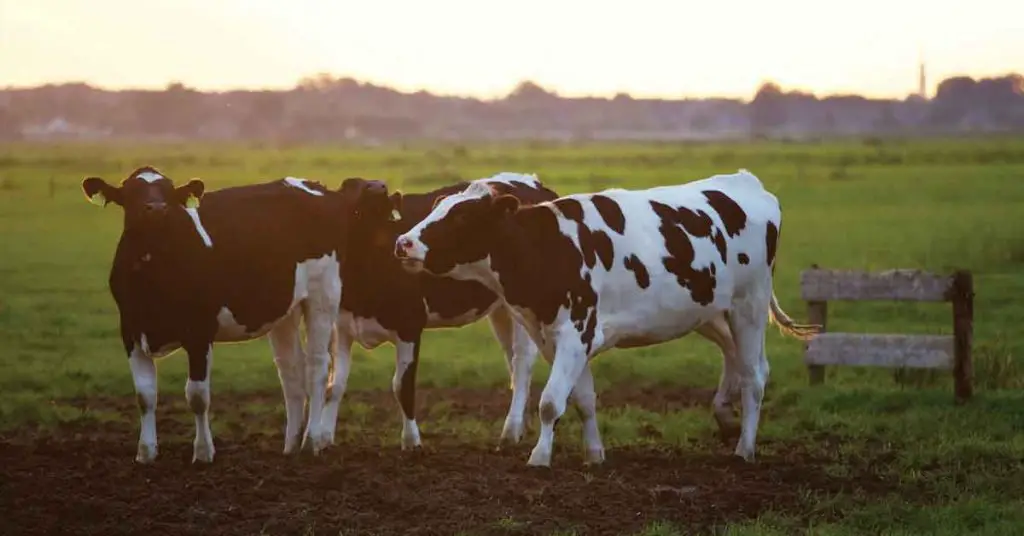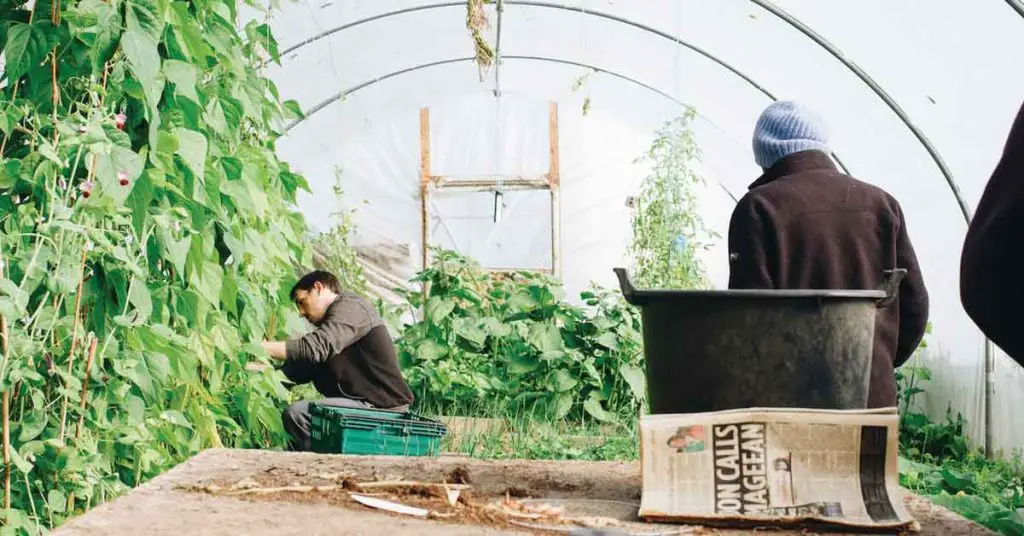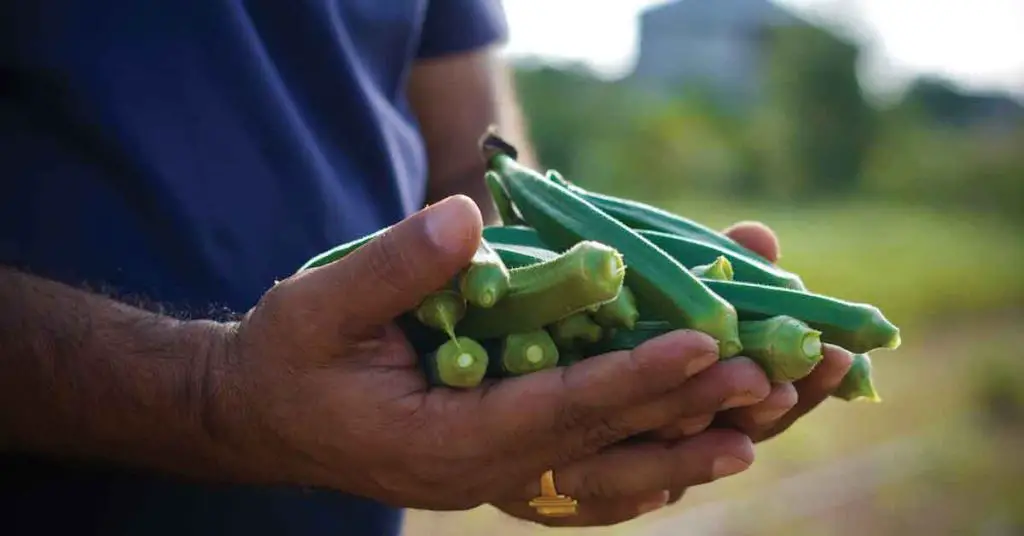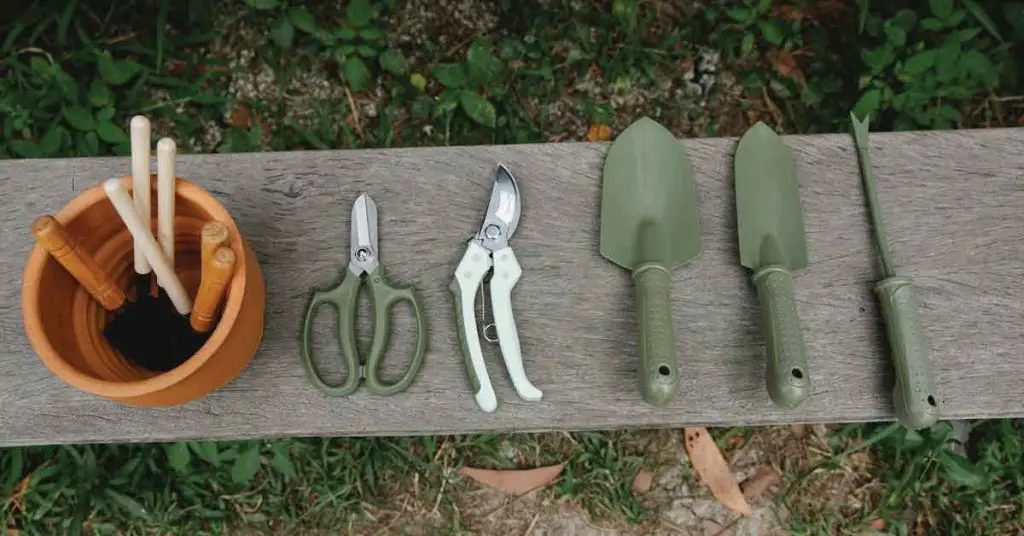Introduction
In this article, we will discuss important homesteading skills to master as a full-time homesteader in order to make your homesteading journey a success.
What is Homesteading?
You’ve arrived in the fascinating world of homesteading! Let’s first discuss what homesteading entails. Simply said, homesteading is a way of life that emphasizes being more self-reliant. This entails producing food, caring for animals, and frequently creating household goods. Homesteading can occur anywhere, from a modest city flat to a sizable rural farm.
Value of Mastering Homesteading Skills
Why is it crucial to develop homesteading skills, then? Well, there are a lot of advantages. It can firstly help you save money. You don’t need to buy vegetables from the store if you cultivate your own or keep chickens for eggs. In addition, it’s healthier. Since you are the one who grows or produces your food, you are completely aware of what is in it. No need to be concerned about dangerous preservatives or chemicals. Not to mention the pride and satisfaction of making something with your own two hands. These talents can also save your life in an emergency or when resources are limited.
But here’s the thing—learning to homestead doesn’t happen overnight. It is a continuous process. You improve as you study more and practice more. In this article, we’ll go into several crucial homesteading abilities you should work to learn. There is information for everyone, whether you are new to this way of life or a seasoned homesteader trying to get better. Let’s get going!
Basic Gardening Skills
A key component of homesteading is food gardening. Working in the garden is not only pleasurable, but it’s also necessary for living independently. So, let’s examine fundamental gardening techniques.
Preparing Soil
It’s essential to prepare the soil before planting anything. A good garden starts with healthy soil. To begin, conduct a soil test to determine what nutrients are required. You might need to add compost or other organic material to make it more fruitful. Do your homework because different plants require different types of soil.
Planting and Growing Seeds
The exciting phase is about to begin: planting! Select the seeds for the fruits or vegetables you want to grow. Ensure to adhere to the spacing and depth recommendations on the seed packets. After sowing, thoroughly water the seeds. Observe them as they begin to expand. They will require the correct amount of water and sunlight. Be patient; plant growth takes time.
Pest Control
The deadliest adversary of a gardener can be pests. However, don’t panic; there are strategies for handling them. Watch out for insects or other animals wishing to eat your plants. Use organic pest management techniques, such as introducing beneficial insects, making your sprays, or growing pest-repelling plants. As strong chemicals can harm your health and your plants, avoid using them.
Harvesting and Preserving
Harvesting your labor’s fruits (and vegetables) is the most enjoyable aspect of gardening. Pick or cut your vegetables off the plants when it is ripe and ready. You might have more crops than you can consume immediately once picked. Herein lies the value of preservation. Your produce can be preserved via canning, freezing, or drying. By doing this, you can eat locally farmed food all year round.
With practice, gardening is a skill that improves. If things don’t go well right immediately, don’t give up. Make a note of any errors you make and keep trying. Once you master gardening, your homestead’s garden will be a source of pride and delectable food.
Livestock Control
Another important homesteading skill to master is raising animals. It’s important to look after animals and use their products sustainably, not merely to have them around. Here are some crucial abilities for managing animals.

Choosing the Right Livestock
Selecting the appropriate animals for your property is the first step in managing your livestock. Think about the size of your land, the local weather, and your objectives. For example, chickens are excellent for beginners because they need little space and lay eggs. Consider larger animals like goats or cows if you have more area. Examine the requirements of each animal and consider the goods you would like, such as meat, milk, or eggs.
Basic Health and Animal Care
It’s important to look after your livestock well. This entails giving them access to sufficient shelter, pure water, and wholesome food. Additionally, it’s crucial to have frequent health checks to avoid diseases. Have a trustworthy local veterinarian and become familiar with the fundamentals of animal health. Knowing the typical ailments that can affect your animals and how to cure them is also a good idea.
Breeding and Raising Young Animals
You must understand breeding if you want to maintain your animal population. It’s crucial to comprehend your animals’ breeding cycles and how to care for pregnant females. When the babies are born, you’ll have to know how to care for and feed them. This frequently entails extra care and sometimes separate lodging.
Processing Animal Products
And finally, you’ll need to be able to process animal products. For instance, you’ll need to know how to gather and clean eggs if you keep chickens. Knowing how to milk your dairy animals and perhaps even create cheese or yogurt is invaluable if you have some. Furthermore, knowing how to butcher and kill animals humanely is crucial if you raise animals for food.
Managing livestock is a significant responsibility that necessitates a variety of abilities. It will be easier to keep your animals healthy and productive on your homestead if you are knowledgeable about their needs and sensitive to them. Therefore, Livestock control is one of the most important homesteading skills to master. Although it takes a lot of work, the benefits of having fresh, home-grown food and enjoying spending time with animals make it worthwhile.
Preservation of Food
A homesteader’s most important and traditional skill is food preservation. It’s essential to utilize your garden’s bounty year-round and prevent food waste. Here is a closer look at a few popular techniques for food preservation.
Pickling and Canning
Food is processed in sealed jars using the canning technique to preserve it for a long time. Fruits, vegetables, meats, and other foods can be canned. Vinegar is used in pickling, a type of food preservation. This technique works well for a range of vegetables, including carrots, onions, peppers, and cucumbers. Purchase some high-quality canning jars and lids and learn about safe canning procedures.
Freezing
One of the simplest methods for food preservation is freezing. Vegetables and fruits may generally be frozen. To preserve the quality of the vegetables, it is frequently advisable to blanch them before freezing. Always store food in sealed containers or freezer bags to avoid freezer burn. Bread, meats, and prepared meals can all be preserved with freezing.
Dehydrating
Dehydrating involves removing the moisture from food, which stops germs and mold from growing. It’s a great method for drying herbs, fruits, and jerky. You can utilize a dehydrator or even a low-heat oven. To keep dehydrated meals fresh, store them in sealed containers in a cold, dark location.
Root Cellaring
Root cellaring is an old-fashioned method of preserving food by storing it in a cool, humid environment. This technique works well for apples and pears, as well as root vegetables like potatoes, carrots, and beets. If you don’t have a traditional root cellar, you may create the same environment in your basement, garage, or even a specific pantry area.
In conclusion, knowing how to preserve food one of the most important homesteading skills to master for a homesteader. It enables you to make the most of your harvests and guarantees that you always have a consistent supply of food from your garden. Additionally, it’s a terrific method to cut costs and waste, increasing the sustainability and independence of your farm. So put on your apron and begin canning!
Carpentry and DIY Skills
Being able to work with your hands is essential for homesteaders. DIY and carpentry abilities allow you to adapt your homestead to suit your unique demands while saving money. Here’s why it’s imperative to master these abilities.
Basic Woodworking
For any homesteader, learning the fundamentals of woodworking is crucial. Woodworking is useful for many things, such as building chicken coops and easy storage bins. Learn about several types of wood and their ideal applications to start. Learn to cut and measure accurately, and then practice putting the pieces together. You can try increasingly challenging projects as your confidence grows.
Constructing and Maintaining Structures
A key component of homesteading is having the skills to construct and maintain buildings. Constructing something on your own is powerful and frequently more cost-effective, whether it’s a fence, garden shed, or goat barn. With this ability, you can design unique solutions for your property and carry out necessary repairs yourself, saving you the cost of hiring a repairman. It helps to have good blueprints before you begin and to take your time to ensure everything is constructed securely and safely.
Tool Repair and Maintenance
On the farm, your tools are your best friends; therefore, maintaining and repairing them correctly is essential. Find out how to keep your tools oiled, clean, and sharp. Learn the fundamentals of how power tools operate so you can troubleshoot issues and carry out easy repairs. Your tools will last longer and continue to work efficiently if you do this, ultimately saving you time and money.
Additionally to being useful, DIY and carpentry skills are also immensely rewarding. The self-sufficient nature of homesteading is best exemplified by the capacity to build and repair with your own two hands. Spend time developing these abilities so your homestead will be better for it. Additionally, nothing compares to the pride of creating something from nothing!
Renewable Energy and Resource Management
Homesteading is about embracing sustainability and becoming an expert in resource management and renewable energy is a big step in the right way. It’s important to maximize your homestead’s productivity and efficiency in addition to decreasing your carbon footprint. Now let’s explore these crucial topics.
Basics of Solar Energy
Utilizing solar energy can significantly lower your energy costs and increase the self-sufficiency of your farm. Basic knowledge about solar energy is essential. Learn about the many solar panels’ kinds and how to install them to receive the most sunshine. It’s also crucial to understand how to store this energy in batteries for usage during cloudy days. Additionally, look at practical applications for solar energy, such as solar water heaters and solar ovens.
Harvesting with Rainwater
Another useful skill for homesteaders is the ability to collect rainwater. It not only offers a different water source, but it also eases the pressure on nearby water supplies. Learn about rainwater collection techniques, from straightforward barrel collection to more sophisticated gutter and storage systems. Learn how to filter and purify this water for household use, livestock, and irrigation, among other applications. As certain locations have restrictions on rainwater collection, it’s also essential to grasp the legal implications of the situation.
Waste Management and Composting
Effective waste management is a sign of a prosperous farm. Recycling kitchen and yard trash into fertile soil for your garden is easy with composting. Learn the fundamentals of composting, including what can be composted, how to keep a compost pile in good condition, and how to use the end product. Additionally, look into recycling, decreasing the usage of plastics and other non-biodegradable items, and other strategies for reducing waste on your homestead.
In conclusion, incorporating sustainable energy sources and efficient resource management into your household is both fiscally wise and environmentally responsible. These abilities support a homesteading lifestyle that is sustainable, fruitful, and enjoyable. Therefore, this is one of the most important skills to master.
If you commit to studying and applying these techniques, your homestead will prosper and serve as a sustainable living model.
Basic First Aid and Healthcare
The safety of you and your loved ones comes first, especially when you’re homesteading, and professional medical aid might not be available right away. Knowing the basics of first aid and healthcare basics can save lives in dire circumstances. Let’s start with the fundamentals.
First Aid for Common Injuries
Injury types like cuts, burns, and sprains are frequent on a homestead. Understanding how to treat these and other types of injuries with first aid is crucial. Create a first aid kit that is fully equipped and keep it nearby initially. Learn the fundamental methods for treating burns, immobilizing sprains or fractures, and cleaning and dressing wounds to prevent infections. Additionally, understanding CPR and other life-saving methods is an excellent idea. If you can, enroll in a first aid course; it’s an investment in your safety.
Natural Remedies and Herbal Medicine
A return to natural treatments and homesteading are frequently related. It can be quite helpful to comprehend herbal medicine. Learn about the different plants and herbs that grow locally and how to use them to treat common conditions, including colds, headaches, and stomach problems. Learn how to create herbal tinctures, salves, and beverages. However, use caution when using herbal remedies, and be aware that some illnesses require a qualified physician’s help.
Emergency Planning
Being ready for medical crises is essential on a homestead. Have an emergency plan in place in addition to your first aid training. This should involve knowing the quickest path to the closest hospital, having emergency contact information available, and being familiar with fundamental emergency procedures. Keep a supply of necessary prescriptions on hand and an emergency pack filled with goods like non-perishable food and a flashlight.
In conclusion, acquiring fundamental knowledge in first aid and healthcare is one of the essential homesteading skills to master. Get the information and resources to handle common injuries, use home treatments, and be ready for emergencies. It’s a courageous and responsible move toward self-sufficiency and the health of your property.
Financial Management for Homesteaders
Managing your money wisely is crucial as you follow the gratifying route of homesteading. Sound financial management guarantees your homestead’s long-term sustainability and prosperity. Let’s talk about budgeting, income diversification, and embracing the age-old practice of bartering and trade to make the most of your financial resources.

Budgeting and Expense Tracking
Knowing how to manage your money well is one of the keys to a successful homestead. Start by making a budget that accounts for all your costs, including those for tools, feed for livestock, seeds, and electricity bills. A budget serves as a financial road map that aids in your decision-making.
Keep an eye on where your money is going as well. Use a budgeting program or a ledger to track all your spending. You can find opportunities to make savings and allocate money more effectively by monitoring your spending.
Diversification of Income
It’s dangerous to depend solely on one source of money. Consider diversifying your sources of income to protect your homestead from sudden drops in your income. Consider creating a small nursery or selling preserves if you have a vegetable garden. Selling dairy products or breeding animals might be another way to get money from livestock. Investigate your artistic side by launching a homesteading blog or giving lectures and classes on your acquired skills.
Trading and Bartering Skills
Trading goods and services is an age-old custom still prevalent today, particularly in the homesteading community. Without the use of cash, commodities or services are exchanged. For instance, you might exchange extra eggs from your hens for some veggies from a neighbor’s garden. Similarly, if you are skilled in carpentry, you could offer to help someone build a chicken coop in exchange for something you require. Bartering helps to build stronger communal bonds while also saving money.
In conclusion, managing a prosperous farm necessitates closely checking finances. You can create a secure and prosperous homestead by creating a budget and keeping track of your costs, diversifying your sources of income, and accepting the bartering custom. As important to homesteading as carpentry or gardening, financial management is an important homesteading skill that must be mastered for long-term success.
Community Building and Communication
Although it frequently seems like a solitary activity, homesteading need not be. Building solid ties with your neighbors and being an active community member can be incredibly fulfilling and advantageous. In this section, we’ll look at how crucial it is for homesteaders to have strong communication and community-building abilities.
Developing Relationships with Neighbors
Being a homesteader requires you to get along well with your neighbors. Being friendly with your neighbors creates a pleasant ambiance and may also be useful when times are tough. If you’re new to the neighborhood, start by saying hello to your neighbors. When you see them, initiate a conversation, and offer to assist if necessary. Mutual aid is extremely helpful when resources are limited in rural areas.
Participating in Community Events and Projects
Getting involved in local events is a great strategy to forge relationships and improve your community. Being involved in your community, whether through a town fair, community garden initiative, or neighborhood fundraising, demonstrates your concern for it. It also provides chances to pick up new abilities, exchange knowledge, and perhaps find nearby resources you were unaware of.
Connecting with Other Homesteaders
Connecting with other homesteaders can provide access to a wealth of knowledge and experiences. Social media, online forums, and homesteading organizations can be used to connect with people who share your interests and objectives. You can also attend meetups, seminars, or workshops on homesteading-related subjects. Networking is a priceless method to pick up new skills, obtain assistance with potential issues, and even find uncommon seeds or livestock varieties.
In conclusion, effective communication and community buildings are desirable traits and crucial abilities for a fruitful and satisfying experience in homesteading. The expansion and viability of your homestead are greatly aided by cultivating relationships with your neighbors, participating in local activities, and networking with other homesteaders. It is possible to build a thriving community and successful crops via teamwork and knowledge sharing.
Problem Solving and Adaptability
Homesteading has its share of difficulties and unforeseen circumstances. Effective problem-solving and change-management skills are not only advantageous but also necessary for the long-term success of your homestead. This part will investigate the significance of adaptation and problem-solving abilities.
Decision-Making and Critical Thinking
You may face various difficulties as a homesteader, such as controlling pests in the garden and repairing leaking roofs. Before making a choice, critical thinkers analyze a situation, gather pertinent data, and balance their options. For instance, if insects are taking over your garden, critical thinking can entail learning what kind of pest it is, comparing several pest treatment options, and selecting the most efficient and environmentally friendly option. Making a decision involves moving forward and putting the chosen course of action into action.
Developing Resilience
Being a homesteader is not always easy. There will be instances when things don’t go as planned. A storm could harm your crops, and animals could get sick. Resilience is keeping a positive outlook, taking lessons from failures, and persevering in the face of difficulty. Building emotional resilience might be essential for retaining motivation and focus even under difficult circumstances.
Being Inventive and Resourceful
Resourcefulness is one of the characteristics of successful homesteaders. This entails developing inventive methods to use the tools and resources you already have. For your garden, you may, for instance, utilize old tires or wooden crates instead of spending a lot of money on planters. Being resourceful and innovative go hand in hand. This could entail developing fresh, more effective methods, such as creating a handmade bug deterrent or building a more effective irrigation system.
In conclusion, problem-solving and change-absorption abilities are essential homesteading skills to master. You may successfully handle the ups and downs of homesteading by sharpening your critical thinking and decision-making abilities, building resilience, and embracing resourcefulness and invention. These abilities will help you lead a more satisfying and fulfilling existence in addition to assisting you in sustaining a profitable homestead.
Recap: Important Homesteading Skills to Master
Let’s pause to consider what we covered as we end this informative tour of the homesteading world.
Rewinding Homesteading Skills to Master
Beginning with fundamental gardening techniques, we dove into soil preparation, planting, insect management, and harvesting. Then, we delved into the world of livestock management, covering everything from choosing the best animals to rearing and caring for them. We discussed the canning, freezing, dehydrating, and root cellaring techniques for food preservation. Our toolbox grew as we talked about DIY and carpentry techniques, such as woodworking and building structures. With an emphasis on solar energy, rainwater collection, and composting, we embraced sustainability through resource management and renewable energy sources. We discussed basic first aid and healthcare to ensure the health of our homestead. After it came advice on budgeting, income diversification, and bartering. The necessity for effective communication, community building, problem-solving, and adaptability emerged as crucial aspects.
Continuous Learning and Improvement
Homesteading is a lifelong journey rather than a final goal. It’s crucial to keep an open mind and strive to improve. Don’t be afraid to hone your skills and attempt new things. Read books, take classes, and interact with other homesteaders. A chance to improve one’s abilities and knowledge as a homesteader exists daily.
Give It a Go!
With this plethora of knowledge, it’s time to roll up your sleeves and get to work. Your farm is a blank canvas, waiting for your imagination and work. Start modestly, possibly by constructing a chicken coop or a garden. Take on more challenging projects as your confidence grows. Keep in mind that every great homestead starts with just one step.
Go forth, brave homesteader, and build the life you dream of with commitment, effort, and an insatiable need for knowledge. Your homestead is more than just a plot of land; it symbolizes your abilities and the limitless potential you possess. Happy Homesteading!
Disclaimer: The information provided in this article is for general informational purposes only and is not intended to be a substitute for professional advice. The author of this article does not claim to be an expert in homesteading and the information provided should not be relied upon to make decisions about your own homesteading journey. Please do your own research and consult with a qualified professional before making any decisions about your homestead.
Share via:
Shaun Alexander is the main writer and editor for HomesteadingSimple.com. With a strong passion for homesteading and sustainability, Shaun has dedicated his life to learning and sharing information about a simple, fulfilling existence tied to the land. His expertise ranges from gardening and livestock management to off-grid living and DIY projects, reflecting the diverse skills necessary for a successful homesteading lifestyle. Shaun’s goal is to inspire and educate others about the possibilities of homesteading, whether in rural, suburban, or urban settings, and to provide practical advice and tips for both beginners and seasoned homesteaders. He believes in a future where more people return to their roots, embracing a life of self-sufficiency and harmony with nature.





